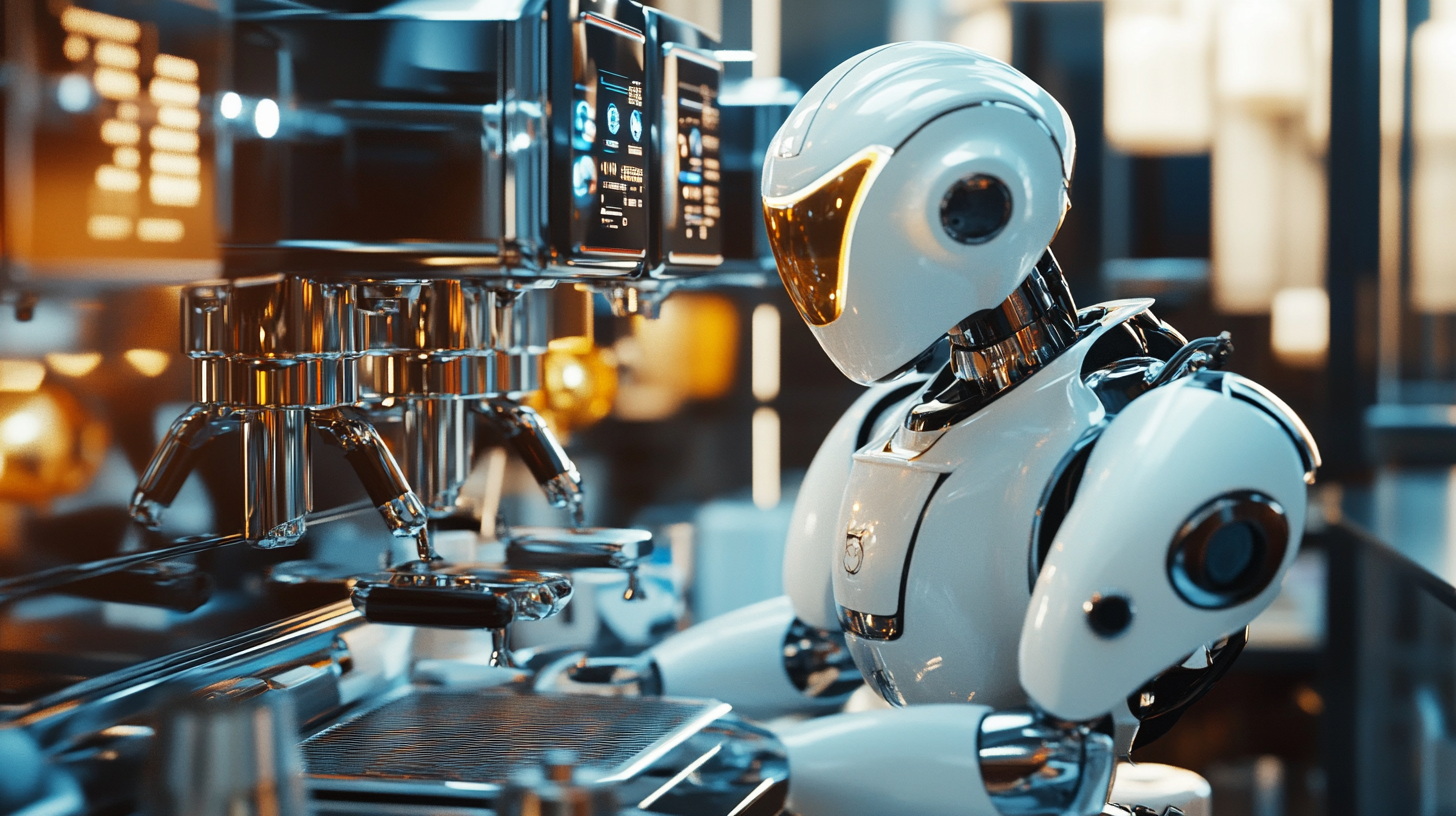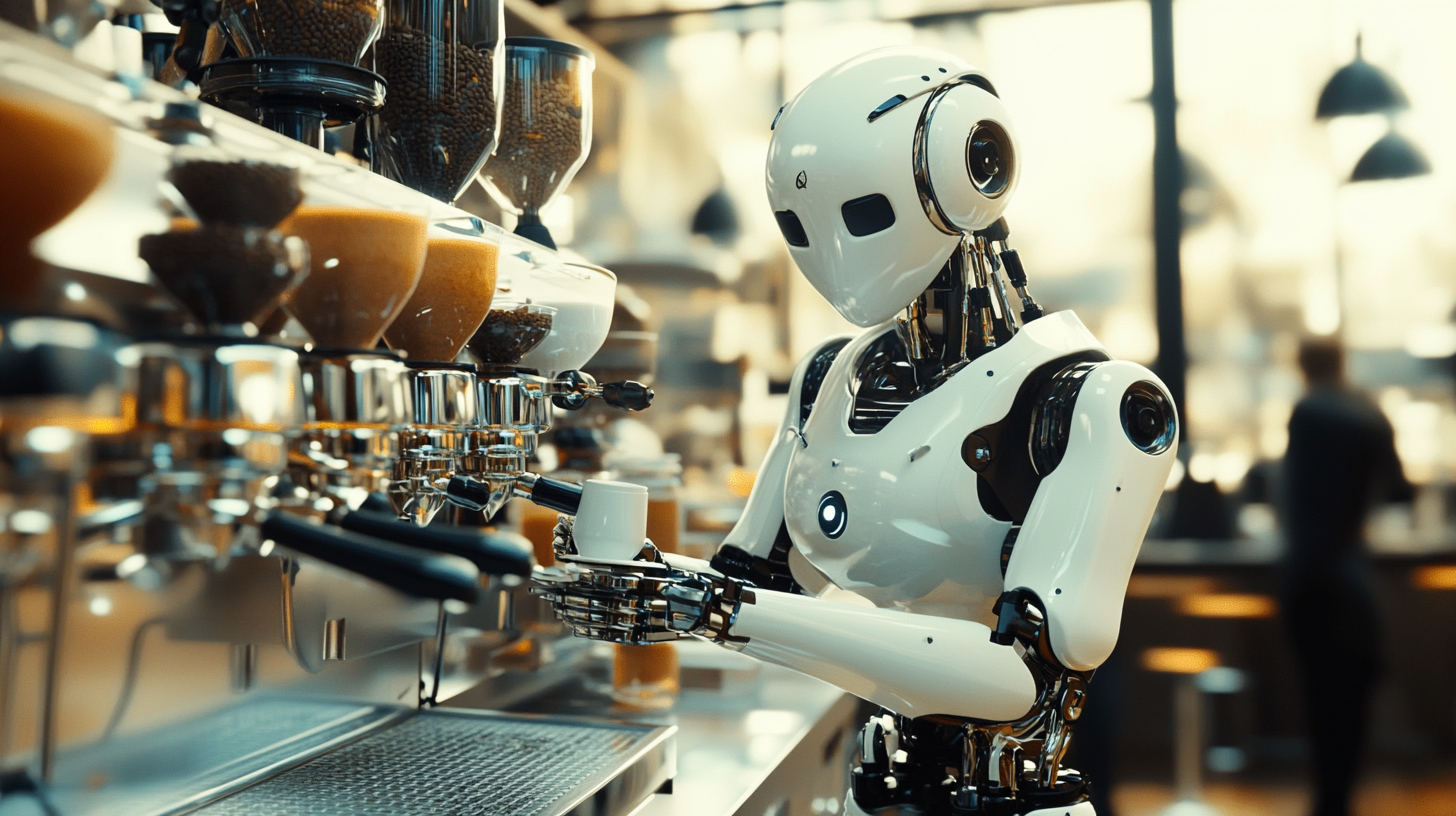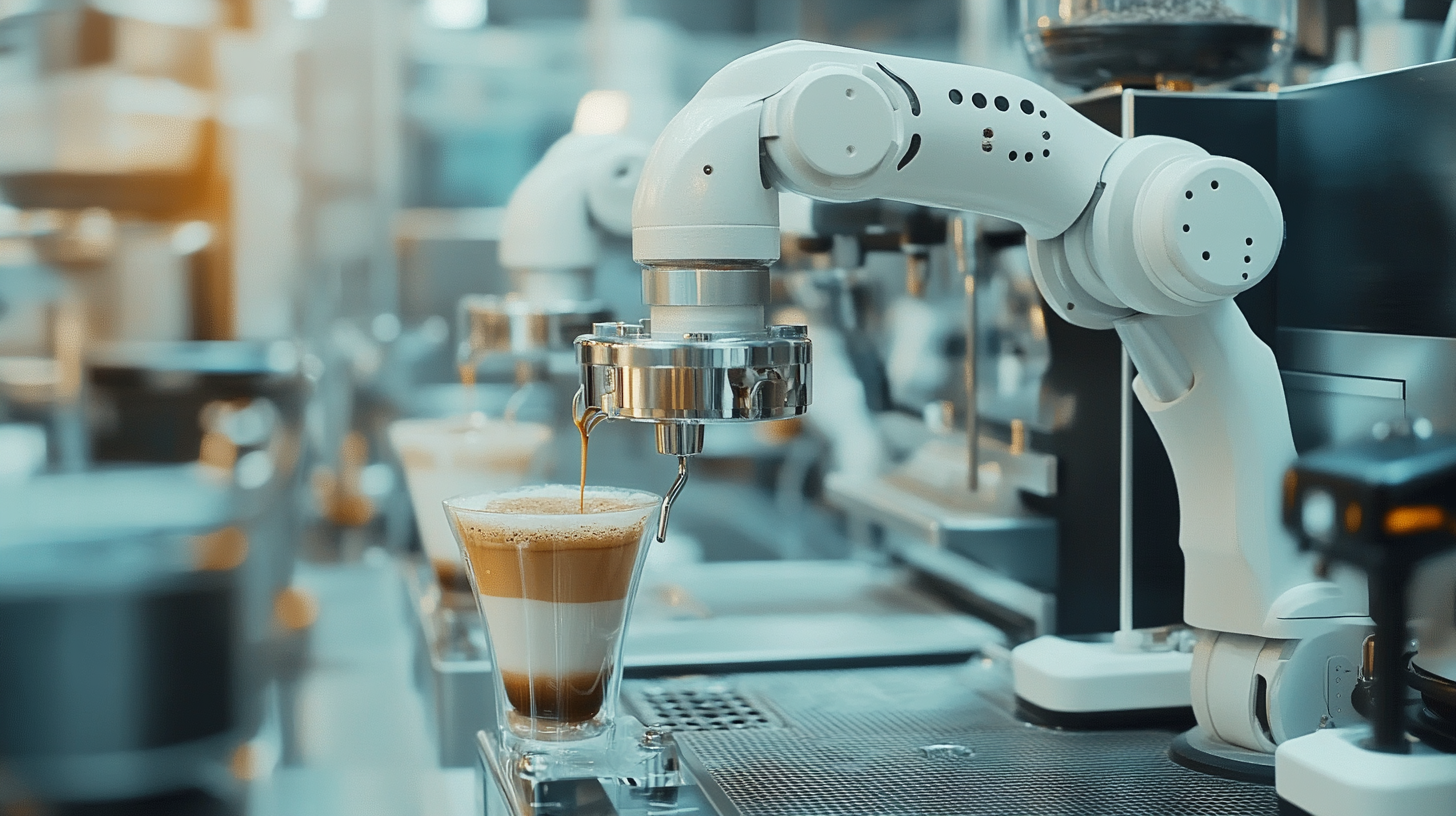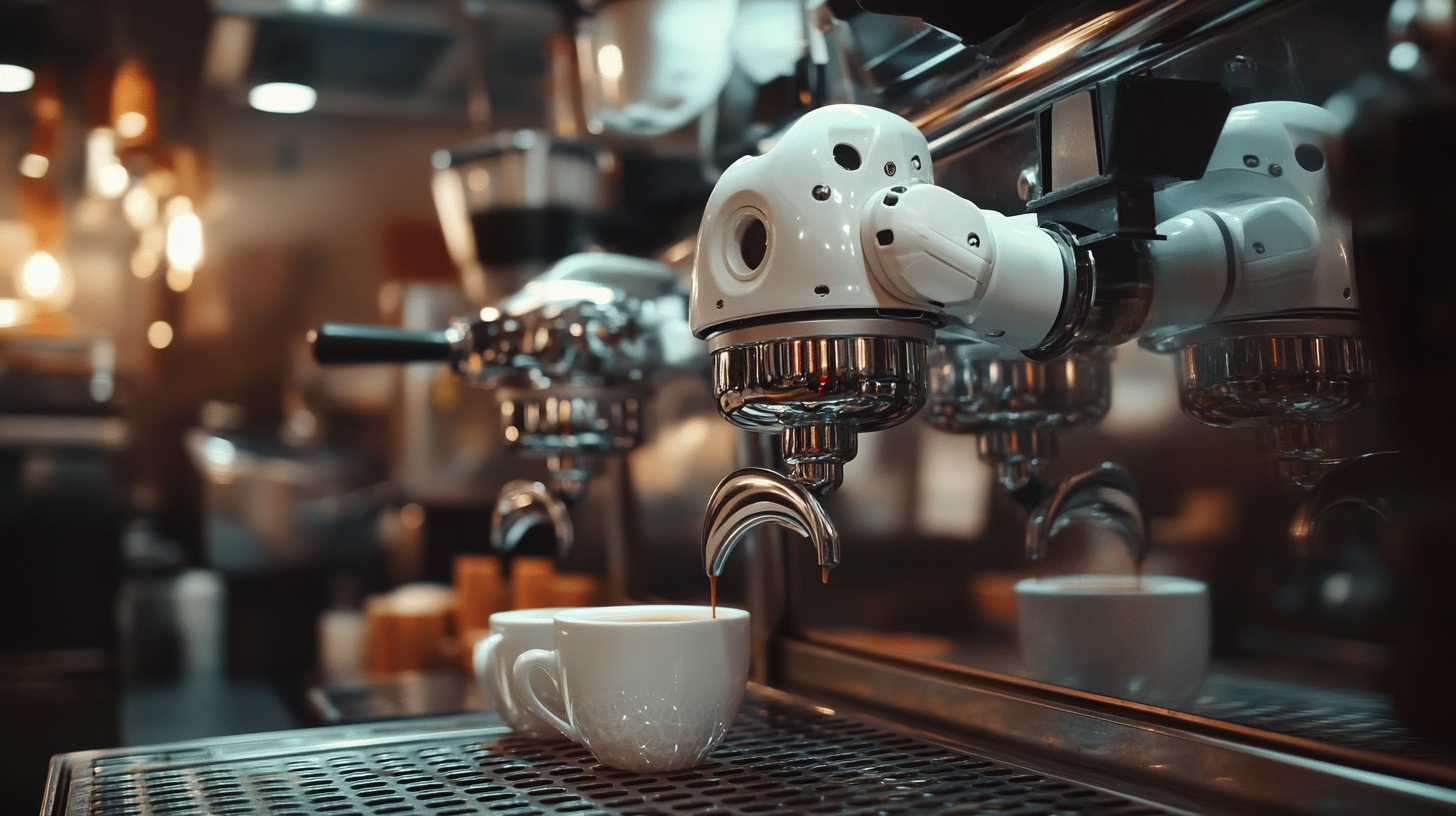Navigating Global Standards for Robot Coffee Barista Export and Import
The global coffee market is experiencing a significant transformation, with the rise of innovative technologies such as the Robot Coffee Barista. According to a report by MarketsandMarkets, the global robotics market is projected to grow from USD 83.6 billion in 2020 to USD 173.2 billion by 2025, showcasing a compound annual growth rate (CAGR) of 16.5%. This growth is not only indicative of advancements in robotics but also highlights the increasing acceptance of automated solutions in various sectors, including the food and beverage industry. The Robot Coffee Barista stands at the forefront of this innovation, combining efficiency and quality to meet the demands of an ever-evolving market while catering to consumers' desire for unique experiences.
Navigating the complexities of global standards for the export and import of such technologies is crucial for businesses looking to capitalize on this trend. A comprehensive understanding of regulatory requirements and compliance measures is essential to ensure the seamless integration of Robot Coffee Baristas into different markets. By addressing these challenges, stakeholders can facilitate smoother international trade and leverage opportunities presented by the growing automation in coffee services. The International Federation of Robotics highlights that by 2024, there will be an increase in the use of service robots, including coffee baristas, paving the way for enhanced customer interactions in cafes and other establishments worldwide.

Key International Regulations Impacting Robot Coffee Barista Trade
As the global market for robotic innovations continues to expand, the trade of robot coffee baristas is increasingly influenced by a variety of international regulations. These regulations ensure safety, efficiency, and compatibility with local market standards, which are critical for the successful export and import of these advanced machines. Understanding the specific requirements in different regions, such as electrical safety certifications and food safety compliance, is essential for businesses looking to enter this competitive market. Key international regulations include the ISO (International Organization for Standardization) standards, which apply to both the safety and operational aspects of robotics. Compliance with these standards not only enhances the marketability of robot coffee baristas but also builds consumer trust. Additionally, regions like the European Union impose stringent CE marking requirements, necessitating that imported products adhere to strict health, safety, and environmental measures. Companies must be proactive in navigating these regulations to avoid delays or rejections at customs. Moreover, trade agreements play a crucial role in shaping the import and export landscape for robot coffee baristas. Agreements such as the USMCA (United States-Mexico-Canada Agreement) can facilitate smoother cross-border trade by reducing tariffs and harmonizing standards. Exporters must stay abreast of changing regulations and trade agreements to leverage opportunities while ensuring compliance, which ultimately aids in achieving successful market penetration.

Understanding Certification Requirements for Robot Coffee Equipment
When considering the export and import of robot coffee baristas, understanding certification requirements is paramount. Different countries have varying standards, which can greatly affect the ability to enter markets. For instance, in the European Union, CE marking is essential to demonstrate compliance with health, safety, and environmental protection standards. This certification ensures that the robotic equipment adheres to EU regulations, which include specific requirements for machinery, electromagnetic compatibility, and low voltage equipment.
Moreover, obtaining the relevant certifications not only enhances marketability but also builds customer trust. In markets like Japan and the United States, specific standards such as ANSI and JIS also come into play. Companies must conduct thorough research to ascertain which certifications are necessary for their target market, as non-compliance can lead to costly penalties or even a ban on sales. Moreover, partnering with local consultants who understand the regulatory landscape can be advantageous, helping to navigate the often-complex certification processes.
Another aspect to consider is the ongoing compliance with industry standards. As technology in robotic coffee baristas advances, regular testing and re-certification may be required to ensure that imported or exported machines remain compliant with current regulations. This is particularly important in the rapidly evolving landscape of robotics where innovation outpaces existing regulations. Therefore, manufacturers and distributors need to stay abreast of changes in certification requirements to maintain seamless operations across borders.

Overcoming Tariffs and Trade Barriers in the Coffee Industry
In recent years, the coffee industry has witnessed a notable shift towards automation, with robot baristas gaining popularity worldwide. However, navigating the complex landscape of tariffs and trade barriers presents significant challenges for businesses looking to export and import these innovative machines. According to the International Coffee Organization, the global coffee market was valued at roughly $102.15 billion in 2020 and is anticipated to grow at a CAGR of 4.6% from 2021 to 2026. As the demand for specialty coffee continues to rise, so does the need for efficient, automated coffee-making solutions.
Tariffs significantly impact the cost structure of importing robot baristas. In the United States, for example, tariffs on machinery can range from 2.5% to as high as 25% depending on the classification of the goods. This can deter potential buyers and inflate the prices of these machines, making them less competitive in the market. Furthermore, the World Trade Organization notes that non-tariff barriers, such as regulatory compliance and certification, add layers of complexity for companies aiming to enter new markets.
To overcome these hurdles, businesses must engage with trade associations and actively monitor policy changes. The Specialty Coffee Association has been pivotal in advocating for lower trade barriers, offering insights into market trends and providing resources for navigating complex regulations. By staying informed and fostering partnerships within the industry, companies can better position themselves to capitalize on the burgeoning global market for robot coffee baristas while mitigating the effects of tariffs and trade barriers.

Market Opportunities and Challenges for Robot Baristas Globally
The rise of robot baristas has created significant market opportunities worldwide, driven by growing consumer demand for efficiency and innovation in the food and beverage industry. According to a report by Market Research Future, the global market for robotics in the food service sector is projected to reach approximately $3.9 billion by 2025, with a CAGR of 16.2% from 2019 to 2025. This rapid growth is fueled by advancements in AI, machine learning, and automation technologies, allowing for seamless operations in busy coffee environments.
However, the journey of exporting and importing robot baristas is fraught with challenges. Companies must navigate a complex web of international standards and regulations, which can vary significantly from region to region. For instance, the European Union has stringent safety and compliance regulations that robot manufacturers must adhere to, impacting market entry strategies. A report from the International Federation of Robotics highlights that compliance failure can lead to costly delays and potential recalls, making it imperative for companies to understand local requirements thoroughly.
Additionally, cultural preferences play a crucial role in the acceptance of robot baristas. While regions like North America are often more open to automation in everyday services, different cultural attitudes towards technology in countries like Japan and Italy can influence market penetration. A survey released by Deloitte found that 41% of consumers in North America are excited about the prospect of robotic services, compared to only 25% in certain European markets. Hence, understanding these variances is essential for effectively positioning robot coffee baristas in the global market.
Strategies for Compliance and Success in International Markets
In the rapidly evolving landscape of international trade, navigating compliance has emerged as a strategic differentiator for businesses looking to succeed in foreign markets. Companies exporting innovative products like robot coffee baristas must prioritize adherence to global standards not only to satisfy legal requirements but also to enhance their competitive edge. As illustrated by recent developments, organizations that create synergies between their compliance functions and strategic objectives are more likely to deliver superior customer experiences, thus positioning themselves favorably in the marketplace.
The growing emphasis on regulatory compliance isn't limited to the technology or financial sectors—businesses across all industries, including hospitality and e-commerce, are recognizing its importance. A proactive compliance strategy can transform potential hurdles into opportunities, allowing companies to efficiently adapt to local regulations while ensuring product safety and quality. In this context, AI is revolutionizing compliance efforts by enabling organizations to shift from reactive to proactive approaches, ultimately streamlining processes and allowing for faster market entry.
Moreover, understanding the specific compliance requirements of target markets can lead to significant benefits, such as enhanced trust and brand loyalty among consumers. By investing in knowledgeable personnel and adequate training, companies involved in the export and import of robotic products can ensure that they not only meet regulatory standards but utilize compliance as a strategic advantage. This shift in mindset is essential for navigating the complexities of global commerce, where speed and agility must be balanced with diligence and thoroughness in compliance initiatives.
 -->
-->
